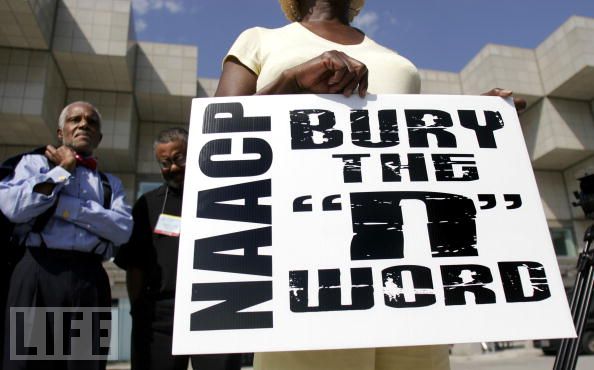Is using the “N” word bad for our health? Definitely, when used continuously and compulsively as do so many of our NYC African American and Latino youth. As a NYC subway straphanger, psychologist and child of the civil rights era, I am blown away by the voracious use of the word by youth; almost every other word is “ni–a” reminiscent of scenes in “Roots,” and more recently in “Django Unchained.” Is this a case of life imitating art or an issue of traumatic abuse now turned against ones’ self? In other words is it just ‘hip’ to use a historically loaded word now benign to a new generation, or is it a symptom of something deeper?
Historically, the word ni–er has been the most profound form of verbal abuse and debasement, often bespoken during episodes of physical abuse, including murder. “Ni–er” was most likely the last word heard by blacks lynched by mobs as they were being strung up for castration, hanging and corpse burning. In response to the 1991 movie “Boys in the Hood” a KKK member stated “we were the ‘original’ boys in the hood.” Consistent with the unconscious process of “identifying with the aggressor,” yesterday’s violence against us at the hands of the KKK has become today’s violence against ourselves, as painfully illustrated in the movie and as evidenced by our “black on black” crime statistics. Any word that can quickly swing from a term of endearment, “My Ni–a” to a term of hate, such as “Die Bitch Ni–a Die,” is too slippery a slope to be a healthy choice for our youth.
In the “internalized racism” workshops I conduct for teens, participants initially protest that their use of the “N” word is a form of empowerment; they have “taken the ‘N’ word back,” not only by tweaking it from “Ni–er” to “Ni–a,” thereby changing its meaning from the “lowest of the low” to a term of endearment, but by maintaining that whites, the historical creators and users of the word, can no longer use it – only we can. Although it is logical for oppressed people to fight for their dignity by taking control of their abusers’ tools, it is a hollow victory if control over the master’s tools contributes to one’s own demise. As stated by the poet, Audre Lorde, “The master’s tools will never dismantle the master’s house.”
Youth also initially proclaim to me that using the “N” word does not negatively impact their self-esteem, but in response to the following workshop questions they have unanimously answered as follows: (1) where do “Ni–as” live? In the Projects! (2) Do “Ni–as” read books? No! (3) Do “Ni–as” graduate high school? No! (4)What do “Ni–as” do? Hang out on the corner! With the NYC Black and Latino high school drop-out rate at 65%, the implications here are clear. After workshop participants watch and process the segment of “Roots” in which Kunta Kente is whipped close to death until he finally utters his slave name, Toby, the parallels between the slave name “Toby” and “Ni–er” are discussed – how it was illegal for slaves to read (an act punishable by death) and how “Ni–as” now don’t read or graduate from high school.
Workshop participants get this and come to agree that using the “N” word is bad for their emotional and social health since it unconsciously impacts their identity, their behavior and their relationships in negative ways. They pledge to each other to abandon the expression and explore other terms they might use like “my brotha/my Sistah,” which purposefully emphasize group unity and self-respect. When asked to write one behavior they might be willing to change, one workshop participant wrote “I will never kill another brother.”

